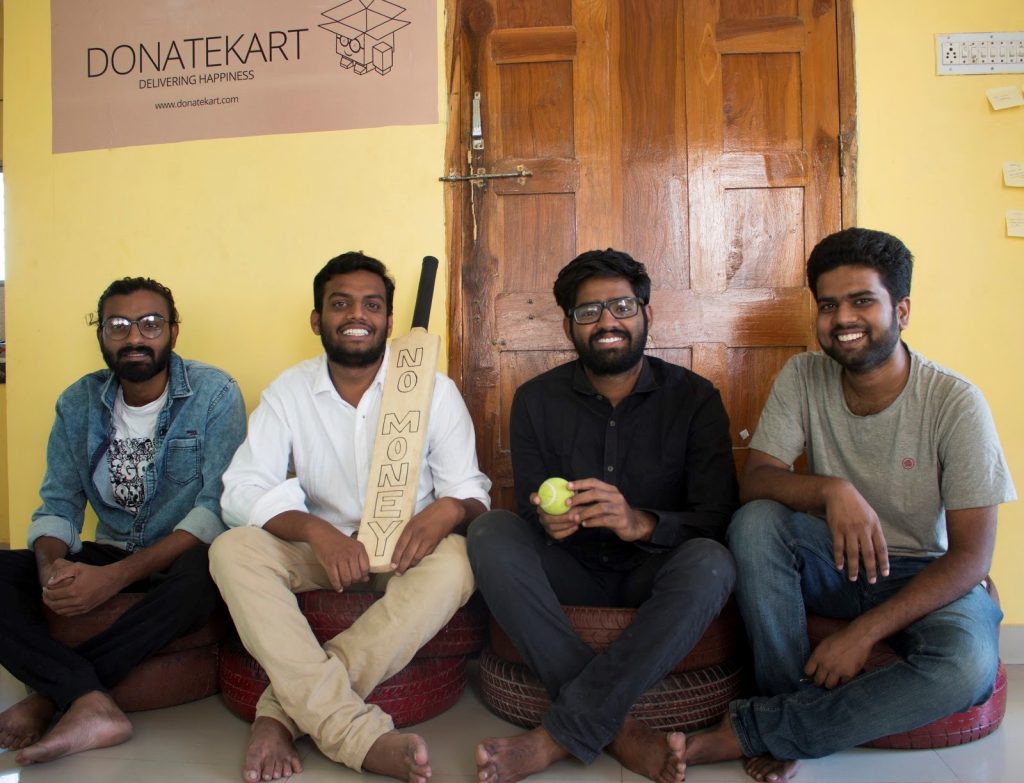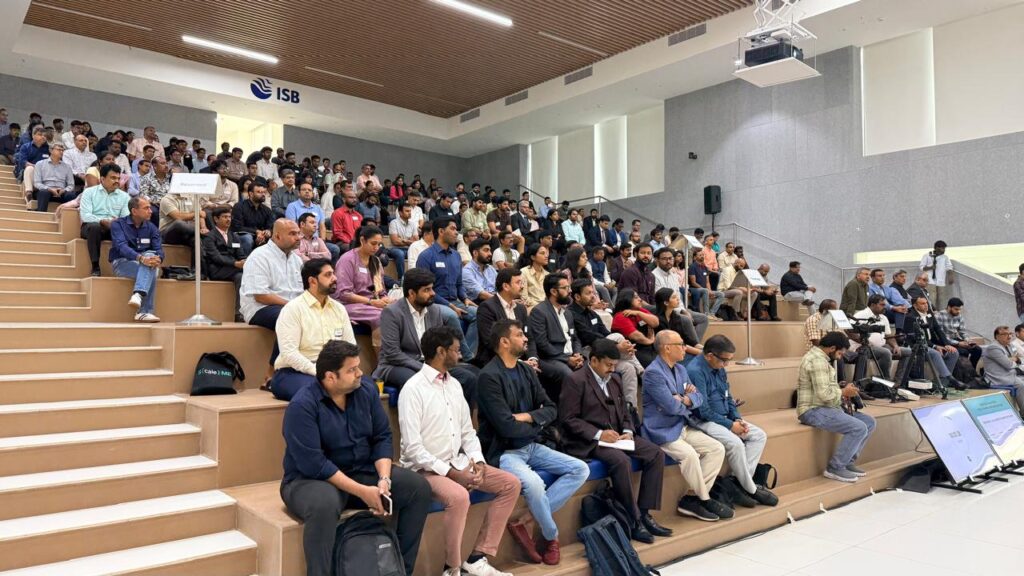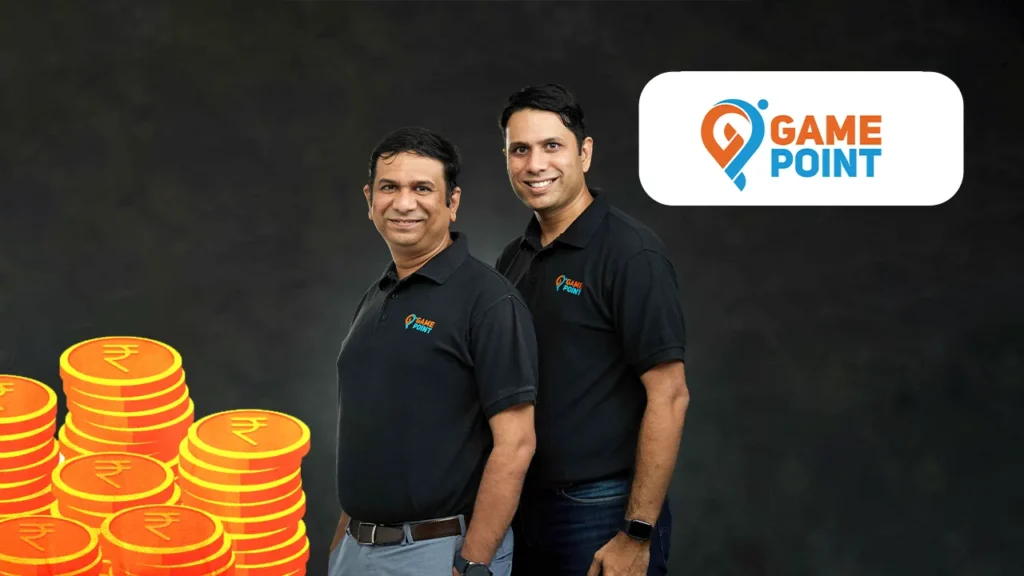While there are many among us who willingly donate money to NGOs, if we are convinced about their work, some shy away because they doubt whether the funds will be put to the right use.
To get rid of this obstacle, two young engineers set up a platform that helps link donors and NGOs in a systematic and transparent way. If you have ever donated or contributed money to an NGO, you must have wondered if it is being put to good use or not.
To dispel such doubts and make donations as transparent as possible, two 21-year-old engineers said no to well-paying jobs to begin a unique crowdsourcing e-commerce platform called Donatekart. Instead of specifying the amount of money they need, NGOs that start crowd-funding campaigns on Donatekart have to list the product(s) they need (like 500 sweaters, 200 caps, 200 pencils, etc.).Assume that an orphanage needs groceries, stationery, pencils, etc. – items that they would have bought if they had the money.
The e-commerce platform collaborates with vendors from all over the country who provide these materials and fixes the price for each product through a reverse bidding process, which is displayed on the website. Upon viewing the campaign, people pay for the required products online, through Donatekart. Once the campaign is over, Donatekart buys the product(s) and delivers directly to the organisation. To make the process more transparent, the organization sends photos of the final delivery of goods to the donors.

DonateKart”s journey goes back to December 2015, when Anil Reddy and Sandeep Sharma, engineering graduates from Nagpur, volunteered during the Chennai floods. We realised that there is a gap between what NGOs and affected people real needs and what people donate. Because of that, a lot of things were not being utilised.
This gave us the idea for DonateKart, says Reddy, one of the co-founders of the company, in one of his interviews. On DonateKart”s platform, instead of donating money directly, donors pay for the things a particular NGO requires, say books or medicines. To maintain transparency, both the NGO and donors can see the number of things donated on the portal. In addition, NGOs share photo updates with donors after receiving the required help. According to Reddy, people often assume the needs of NGOs. For example, NGOs working in the field of education often receive abundant notebooks or pencils, but they also require school bags and other items. DonateKart is trying to fill this gap.
The online platform currently has around 200 small and medium NGOs onboard working mainly in the fields of education, children, women’s health, animal welfare and old-age homes.
DonateKart has run 320 campaigns so far, that typically last for 35-40 days. The average success rate of these campaigns is 60%. Till date, 8,000 donors have contributed to DonateKart”s website of which 35% were from overseas. The start-up accepts donations in rupees, dollar, pound and euro. DonateKart works with a cross-section of NGOs, from the ones helping lower-income people and orphaned children to NGOs working for animal welfare, women empowerment, health and old-age shelter homes. The major categories include education, natural disasters, and animal welfare and the majority of donations go to Tier 1 cities like Mumbai, Hyderabad, and Delhi. Interestingly, 35 percent of donors on Donatekart are from the US, UK and 30 other international locations. That perhaps explains the impressive ticket size.
The startup, without revealing exact numbers, says it is growing 20 per cent month-on-month. It is also recording about 17 per cent, repeat donors. Donatekart does not charge NGOs who are allowed to list their campaigns for free. It takes a 10 to 15 per cent cut of vendor revenues.
The platform recently crossed 1.5 crore overall worth of products raised on the platform donated by 6000+ donors from 30 + different countries. This is a true validation that people across the world want to give back to India and we are acting as a platform facilitating both NGOs & donors, adds co-founder Sandeep Sharma who hails from Kodad in Telangana and has spent a few years in Hyderabad.
So far, DonateKart has raised grocery and essentials for old-age shelter homes, school bags for children in Telangana and sewing machines for an NGO working for women empowerment in rural Maharashtra. Its most successful campaign was on Women’s Day when it raised money for a child health foundation to distribute sanitary napkins among the tribal girls of Palghar, Maharashtra. Around 1,200 donors helped to achieve 100% target of raising money for 10,000 packs at 32 each in a week”s time. The start-up doesn’t charge money from NGOs or donors. They have around 40 vendors spread across the country who supply school bags, blankets, grocery and more to these NGOs, and the start-up collects a margin of around 15% from them. DonateKart has distributed products worth 1.7 crore via these vendors to date.
This Hyderabad-based T-Hub incubated startup Donatekart has raised Rs 2.55 crore (approximately $360,000) from a group of investors led by LetsVenture in its seed round. With this investment, Shanti Mohan, founder, LetsVenture will join Donatekart”s board. Vijay Shekhar Sharma, the founder of Paytm, has also endorsed Donatekart in 2018. The organization has been supported by HDFC Parivartan, a Corporate social responsibility initiative of HDFC Bank. During 2018 Christmas, Donatekart partnered with HDFC Bank where donations from HDFC Bank employees fulfilled wishes of 1200 poor kids across India. The organization also initiated a matching donation drive with Yes Foundation, a CSR initiative of Yes Bank, where 7 campaigns were 100% matched by Yes Foundation whenever any donation was made to such campaigns. In February 2018,

Donatekart won the NASSCOM Social Innovation Forum Award in the financial inclusion category. Prior to that, in March 2017, it secured the second spot out of 100 in the prestigious Azim Premji Social Enterprise Challenge held in Bengaluru. Currently, the start-up is being mentored by Zone Startups in Mumbai. DonateKart reaches out to donors through social media and digital campaigns. To reach out to more people, it is now trying to tie-up with corporate companies who would then encourage their employees to donate. So, if you are still hesitant to donate in cash, DonateKart can be your first stop now.








